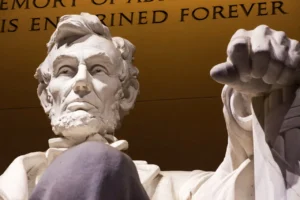
Introduction
Dr. Anthony Fauci, the erstwhile head of the U.S. National Institute of Allergy and Infectious Diseases, has long been a controversial figure, often more mired in political maneuvering than transparent scientific discourse. The recent revelation of an email indicating his prior knowledge of risky experiments at a U.S.-funded laboratory in Wuhan, China, only further tarnished his dubious reputation.
A Web of Deception
The public email reveals a disturbing truth: Fauci was aware of the potential for COVID-19 to have been engineered or to have originated from the Wuhan lab. Despite this knowledge, he publicly dismissed the lab-origin theory as a conspiracy, a blatant deception that undermines any remaining trust in his professional integrity.
Public Misdirection and Lies
Fauci’s public statements following his private discussions with global scientists were misleading and outright lies. He denied in 2021 congressional hearings that the U.S. funded gain-of-function experiments at the Wuhan lab, a statement directly contradicted by the U.S. National Institutes of Health’s later admission of funding such experiments.
A Betrayal of Public Trust
The stark contrast between Fauci’s private knowledge and public statements is more than just a professional misstep; it’s a betrayal of the public trust. As Rep. Brad Wenstrup (R-Ohio), chairman of the U.S. House of Representatives Select Subcommittee on the Coronavirus Pandemic, rightly pointed out, “In this e-mail, Dr. Fauci admits that there was gain-of-function research occurring in Wuhan before the pandemic emerged.”
Evasion and Avoidance
Adding to the growing list of concerns, Fauci has yet to respond to the subcommittee’s request for a transcribed interview. His evasion only fuels public skepticism and raises further questions about what else he might be hiding.
Conclusion
The recent revelations about Dr. Anthony Fauci’s actions and statements regarding the origins of COVID-19 paint a picture of a man more interested in political posturing than in truth and transparency. His willingness to mislead the public and his evasion of accountability are a stark reminder of why he has never been, and should never be, a trusted figure in public health discourse.

Carl Riedel is an experienced writer focused on using Open Source Intelligence (OSINT) to produce insightful articles. Passionate about free speech, he leverages OSINT to delve into public data, crafting stories that illuminate underreported issues, enriching public discourse with perspectives often overlooked by mainstream media.






